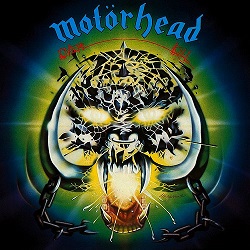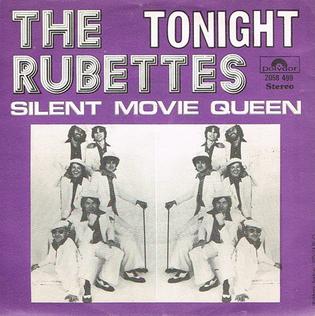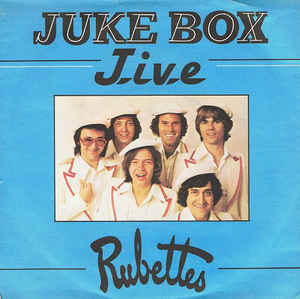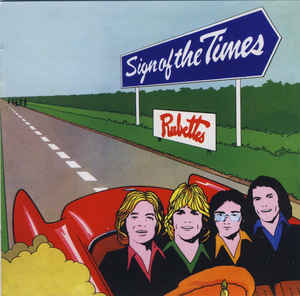
The Rubettes are an English pop/glam rock band put together in 1974 after the release of "Sugar Baby Love", a recording assembled of studio session musicians in 1973 by the songwriting team of Wayne Bickerton, the then head of A&R at Polydor Records, and his co-songwriter, Tony Waddington, after their doo-wop and 1950s American pop-influenced songs had been rejected by a number of existing acts. Waddington paired the group with manager John Morris, the husband of singer Clodagh Rodgers and under his guidance, the band duly emerged at the tail end of the glam rock movement, wearing trademark white suits and cloth caps on stage. Their first release, "Sugar Baby Love" was an instant hit remaining at number one in the United Kingdom for four weeks in May 1974, while reaching number 37 on the US chart that August, and remains their best-known record. Subsequent releases were to be less successful, but the band continued to tour well into the 2000s with two line-ups in existence.

Light Years is the seventh studio album by Australian singer Kylie Minogue. Mushroom Records released it on 22 September 2000 in Australia; Parlophone released it on 25 September 2000 in the United Kingdom. Following the commercial failure of Impossible Princess (1997), Minogue left Deconstruction Records and took a hiatus from recording music. She signed with Parlophone in June 1999 and decided to return to her pop roots. She worked with various writers and producers, including Steve Anderson, Johnny Douglas, Robbie Williams, Guy Chambers, and Mark Picchiotti.

Michael Kevin Taylor is an English guitarist, best known as a former member of John Mayall's Bluesbreakers (1967–1969) and the Rolling Stones (1969–1974). As a member of the Stones, he appeared on: Let It Bleed (1969), Get Yer Ya-Ya's Out! The Rolling Stones in Concert (1970), Sticky Fingers (1971), Exile on Main St. (1972), Goats Head Soup (1973) and It's Only Rock 'n Roll (1974).

Overkill is the second studio album by English rock band Motörhead, released in March 1979. It was the band's first album with Bronze Records. Kerrang! magazine listed the album at number 46 among the "100 Greatest Heavy Metal Albums of All Time". American thrash metal band Overkill was named after this album.

Iron Fist is the fifth studio album by English rock band Motörhead, released in April 1982 by Bronze Records. It was the final album of the classic Three Amigos lineup of Lemmy Kilmister, "Fast" Eddie Clarke, and Phil "Philthy Animal" Taylor. The album peaked at No. 6 on the UK album charts. It was preceded by the release of the title track "Iron Fist" as a single on 3 April, which peaked in the UK singles chart at No. 29.

Hugh Alan Cornwell is an English musician, singer-songwriter and writer, best known for being the lead vocalist and lead guitarist for the punk rock and new wave band the Stranglers from 1974 to 1990. Since leaving the Stranglers, Cornwell has gone on to record a further ten solo studio albums and continues to record and perform live.

Whatever You Want is the twelfth studio album by the British rock band Status Quo.

"Sugar Baby Love", recorded in autumn 1973 and released in January 1974, is a bubblegum pop song, and the debut single of The Rubettes. Written by Wayne Bickerton and Tony Waddington and produced by Bickerton, engineered by John Mackswith at Lansdowne Recording Studios, and with lead vocals by Paul Da Vinci, "Sugar Baby Love" was the band's one and only number one single in the UK Singles Chart, spending four weeks at the top of the chart in May 1974.

We Can Do It is the second studio album by the English pop band The Rubettes, released on the State Records label in March 1975. The album reached no 41 in the UK charts and contained two UK top 10 hits – "I Can Do It" and "Juke Box Jive".

Wear It's 'At is the debut album by English pop band The Rubettes assembled in 1973 by the songwriting team of Wayne Bickerton, then the head of A&R at Polydor Records, and his co-songwriter, Tony Waddington, after their doo-wop and 1950s American pop-influenced songs had been rejected by a number of existing acts. Tracks from this album also exhibited the doo-wop style. The album title was a reference to the group's wearing trademark white suits and white cloth caps on stage, a white cap being shown on the album front cover.

"Runaway Train" is a song by English musicians Elton John and Eric Clapton. A CD, cassette and 7-inch vinyl single from Elton John's album The One was released in July 1992 and was later accompanied by a music video shot the same year. It was also used in the Lethal Weapon 3 movie soundtrack.

Rubettes is the third studio album by the English pop band The Rubettes, released on the State Records label in November 1975, their third studio album release within 12 months. It was the last Rubettes album produced by Wayne Bickerton and Tony Waddington.The album contained two UK top 40 hits - Foe Dee O Dee and Little Darling.
In 1992, Dice Records (France) released the Rubettes' third and fourth albums as a double CD set. In 2015, Caroline Records released the album Rubettes, with three bonus tracks, as part of a box CD set of the Rubettes' first five studio albums.

"Tonight" was the second single released by The Rubettes from their debut album Wear It's 'At. Written by Wayne Bickerton and Tony Waddington and produced by Bickerton, the single reached number 12 in the UK charts.

"Juke Box Jive", by English band The Rubettes, was the lead single from their second album We Can Do It. As with their two previous singles, it was written by the songwriting team of Wayne Bickerton and Tony Waddington and produced by Bickerton. The single reached number 3 in the UK charts.

Sign of the Times is the fourth studio album by the English band The Rubettes. It was released on the State Records label in June 1976. The album represented a significant change in direction for the band, as it was the first not produced by Wayne Bickerton and Tony Waddington – instead the Rubettes took on production responsibilities themselves, with Alan Blakley as co-producer. The band made the decision due to the disappointing sales of their previous two Bickerton/Waddington singles and the desire to forge new musical directions.

Still Unwinding is the seventh studio album by the English band The Rubettes. It was released on the Polydor label in October 1978, just seven months after their previous studio album Sometime In Oldchurch. It was the last album the band released in the 1970s - their next album Shangri'la, despite being recorded in 1979, was not released until 1992.

Baby I Know is the fifth studio album by the English band The Rubettes. It was released on the State Records label in April 1977.

Sometime In Oldchurch is the sixth studio album by the English band The Rubettes. It was released on the Polydor Records label in March 1978.
Riding on a Rainbow is a studio album by the English band The Rubettes. It is the band's ninth studio album, despite being released approximately six months before the eighth album Shangri'La.
Mick Clarke is an English bass guitarist, who is best known as a member of three pop and rock groups, The Symbols, The Tremeloes and The Rubettes.


















